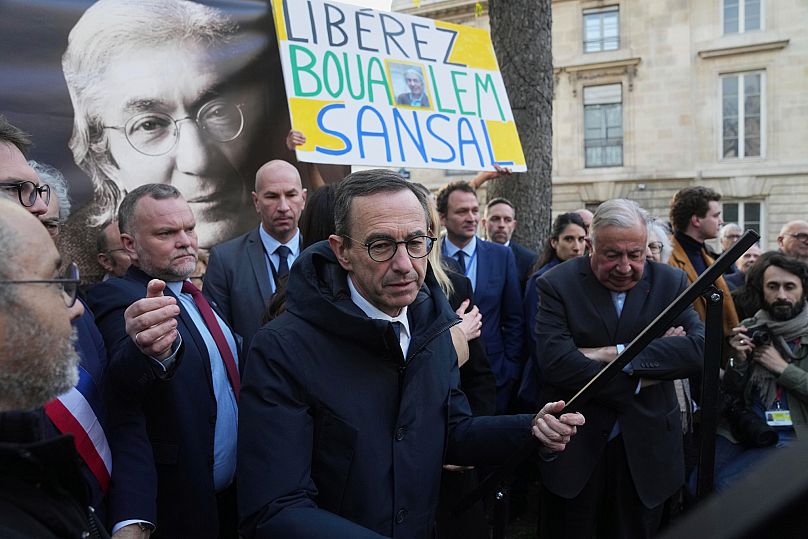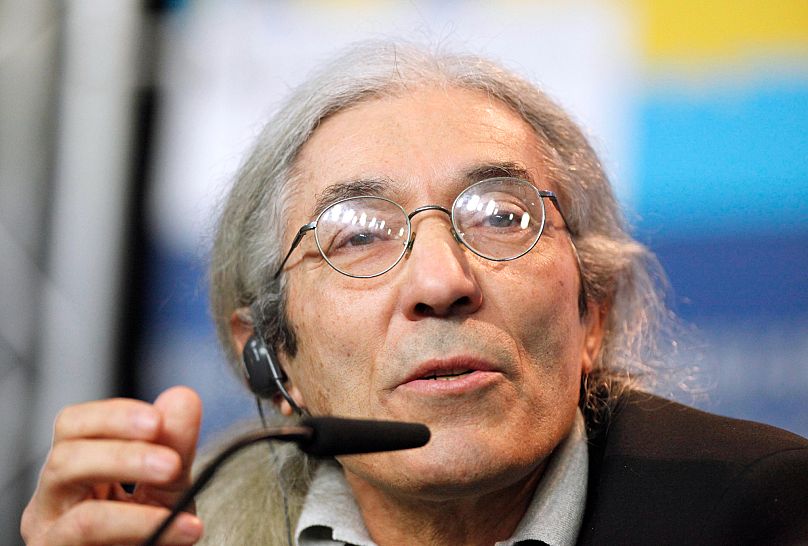A court in Algeria has upheld Franco-Algerian author Boualem Sansal’s five-year prison sentence in a case that has raised alarm over freedom of expression in Algeria and pushed tensions with France to the brink.
The Académie Française prize-winning author of “2084: la fin du monde” (“2084: The End of the World”), a dystopian novel set in an Islamist totalitarian society following nuclear war, was charged in March under Algeria’s anti-terrorism laws and convicted of “undermining national unity.”
Sansal’s appeal was closely watched in both France and Algeria. The novelist’s case has united European lawmakers, who have demanded his release.
However, Algerian lawmakers have condemned the European Parliament for a resolution criticizing the arrest of Sansal.
Lawmakers from both chambers of the North African nation’s parliament signed a statement in January rebuking the European Parliament’s resolution for “misleading allegations with the sole aim of launching a blatant attack against Algeria.” They accused the European Parliament of political inference and cast doubt on whether their motivations had to do with Sansal’s well-being or “harming the image of Algeria.”
Sansal has gained mass public support in France.
Last year, French news magazine Le Point released a letter written by Prix Goncourt winner Kamel Daoud and signed by multiple famous authors, demanding Sansal’s immediate release.
Signatories of the letter include the Nobel Prize winners Annie Ernaux, Jean-Marie Gustave Le Clézio, Orhan Pamuk, Salman Rushdie, Peter Sloterdjik, Roberto Saviano and Wole Soyinka.
The letter reads: “This tragic news reflects an alarming reality in Algeria, where freedom of expression is nothing more than a memory in the face of repression, imprisonment, and the surveillance of the entire society.”
Sansal was arrested in November last year at Algiers airport after he said that France unfairly ceded Moroccan territory to Algeria in an interview with right-wing French media outlet Frontières.
Prosecutors had requested a 10-year prison sentence for the novelist, who has been convicted under article 87 of the Algerian penal code for undermining national unity, insulting an official body, undermining the national economy and possessing videos and publications that threaten national security and stability.
Sansal defended his comments to the media, telling the court that “my comments or writings were simply a personal opinion, and I have the right to do so like any Algerian citizen”.
The case has unfolded at a historic low point in Algeria’s relations with France, which were strained further over the disputed Western Sahara.
The territorial dispute has long helped shape Algeria’s foreign policy, with its backing of the Polisario Front, a pro-independence group that operates out of refugee camps in southwestern Algeria.
Last year, France shifted its longstanding position to back Morocco’s sovereignty plan. Analysts say that Sansal has become collateral damage in the broader diplomatic fallout and describe the charges as a political lever Algiers is deploying against Paris.
French President Emmanuel Macron has previously called on Algeria to release Sansal.
“I hope there can be humanitarian decisions by the highest Algerian authorities to give him back his freedom and allow him to be treated for the disease he is fighting,” he said in a news conference earlier on this year.
It was not the first time that Macron spoke up for Sansal, as he accused Algeria of “disgracing itself” through the imprisonment.
“Algeria, which we love so much and with which we share so many children and so many stories, is dishonoring itself by preventing a seriously ill man from receiving treatment,” he said during a speech to French ambassadors at the Elysée Palace. “And we who love the people of Algeria and its history urge its government to release Boualem Sansal.”
Sansal’s supporters now hope military-backed President Abdelmadjid Tebboune will grant a pardon on Saturday, when Algeria marks Independence Day and traditionally frees selected prisoners as part of a national amnesty.
Additionally, the timing is dire, supporters warn, as Sansal battles prostate cancer and has spent part of his detention in a prison hospital.







